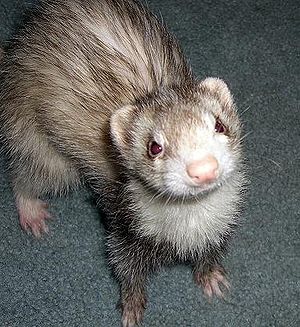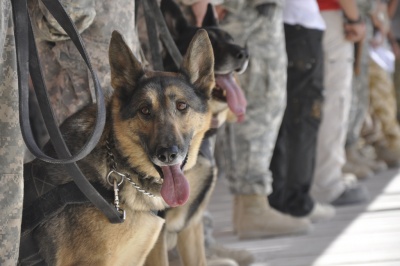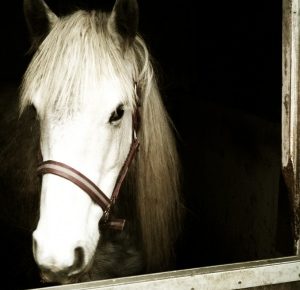 |
Ferrets are carnivores and don’t get any nutritional benefits from eating plants. Their diet must be high in animal protein, high in fat, and low in fiber. Ferrets have a short digestive system and a quick metabolism. Food should always be available to them. Obesity is not a concern, since ferrets only eat as much as they need to survive. If your ferret is getting fat, it is probably due to insufficient exercise and not diet. If you are concerned about your pet’s weight, consult your veterinarian.
It is most convenient to feed your ferret dry food, since it can be left out for long periods of time. Although ingredients are listed, proportions are not. The foods listed first are the highest proportions, but some companies practice “ingredient splitting.” They use a lot of undesirable ingredients, but of different types, so that they will appear low on the ingredient list.
The highest quality ferret foods will have meat and eggs mentioned in the first three ingredients. Corn gluten, soy meal, rice gluten and other vegetable or grain based proteins are not useful to ferrets and shouldn’t be included. Look for foods which do not have added sugars, since they are not good for ferrets despite the fact that they enjoy them. Fish based foods are high in protein but not all ferrets like the taste.
In the past, ferret owners were told to feed their pets premium cat food, but a greater understanding of the nutritional needs of ferrets has made this recommendation obsolete.
Treats can be provided occasionally. Vitamin supplements and hairball remedies can be used for this purpose, as well as eggs (hard boiled, scrambled), bits of cooked meats, or freeze dried liver treats.



